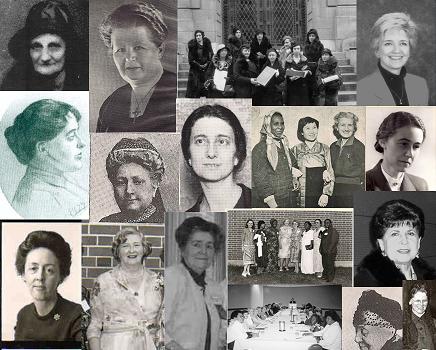NOTE! This site uses cookies and similar technologies.
If you not change browser settings, you agree to it.
I understand
+39 0669887260 | info@wucwo.org | Contact us

2023-Present Mónica Santamarina (Mexico)
2018-2023 María Lía Zervino, Servidora (Argentina)
2010-2018 Maria Giovanna Ruggieri (Italy)
2006-2010 Karen M. Hurley (U.S.A.)
1996-2006 Maria Eugenia Díaz de Pfennich (Mexico)
1987-1996 Marie-Thérèse van Heteren-Hogenhuis (Netherlands)
1983-1987 Eleanor E. Aitken (Canada)
1974-1983 Elizabeth Lovatt-Dolan (Ireland)
1961-1974 María del Pilar Bellosillo (Spain)
1952-1961 Marie du Rostu (France)
1922-1952 Mrs. Steenberghe - Engeringh (Netherlands)
1913-1922 Countess Vodzicka (Poland) First International President
1913 Margaret Fletcher (England) Elected to prepare the following Council
1912 Countess Zicky - Metternich (Austria) Elected to prepare the following Council
1911 Marchioness de Unza del Valle (Spain) Elected to prepare the following Council

WUCWO / UMOFC
1910-2010
WUCWO's aim is to promote the presence, participation and co-responsibility of Catholic women in society and the Church, in order to enable them to fulfil their mission of evangelisation and to work for human development.
The World Union of Catholic Women’s Organisations (WUCWO) was founded in 1910 and now represents nearly 100 Catholic women’s organisations worldwide, active in around 50 countries including all continents and some island states, counting on around eight (8) million Catholic women of every walk of life. WUCWO’s aim is to promote the presence, participation and co-responsibility of Catholic women in society and the Church, in order to enable them to fulfil their mission of evangelisation and to work for human development, particularly in increasing educational opportunities, poverty reduction and the advancement of human rights beginning with the fundamental right to life.
In 2006, WUCWO was erected by the Holy See as a Public International Association of the Faithful. This canonical status honours the efforts of Catholic women active in our Union at the parish, diocesan, national and international levels.
WUCWO unites Catholic women in the world to give them a voice on the international platform. Since their inception, WUCWO has held Consultative status with the United Nations Economic and Social Council (ECOSOC), the Human Rights Council (Geneva), the FAO (Rome), participatory status at the Council of Europe (Strasbourg), and is an official partner of UNESCO (Paris).
WUCWO examines the critical issues that have an impact on the lives of women internationally and promotes the dignity of every human being.
WUCWO coordinates the activities of Catholic women's organisations worldwide, serving as a necessary link between them and the network of international organizations and faith communities.
Through them, WUCWO helps train those who are without resources or opportunities, provides victims of violence and poverty a means of subsistence for them and their children and helps enable them to fulfill their mission of evangelisation and to work for human development.
WUCWO’s principal areas of activity are:
• Promote the formation of women in order for them to face contemporary challenges
• Foster awareness and respect of cultural diversity
• Promote and coordinate the activities of Member Organisations at the international level and represent them in international bodies
• Network with other international organisations and faith communities for the respect of human rights, especially those of women
• Encourage ecumenical and interreligious dialogue.
The World Union of Catholic Women’s Organisations (WUCWO) was founded in 1910 and now represents nearly 100 Catholic women’s organisations worldwide, active in around 50 countries including all continents and some island states, representing more than eight (8) million Catholic women of every walk of life. WUCWO’s aim is to promote the presence, participation and co-responsibility of Catholic women in society and the Church, in order to enable them to fulfil their mission of evangelisation and to work for human development, particularly in increasing educational opportunities, poverty reduction and the advancement of human rights beginning with the fundamental right to life.